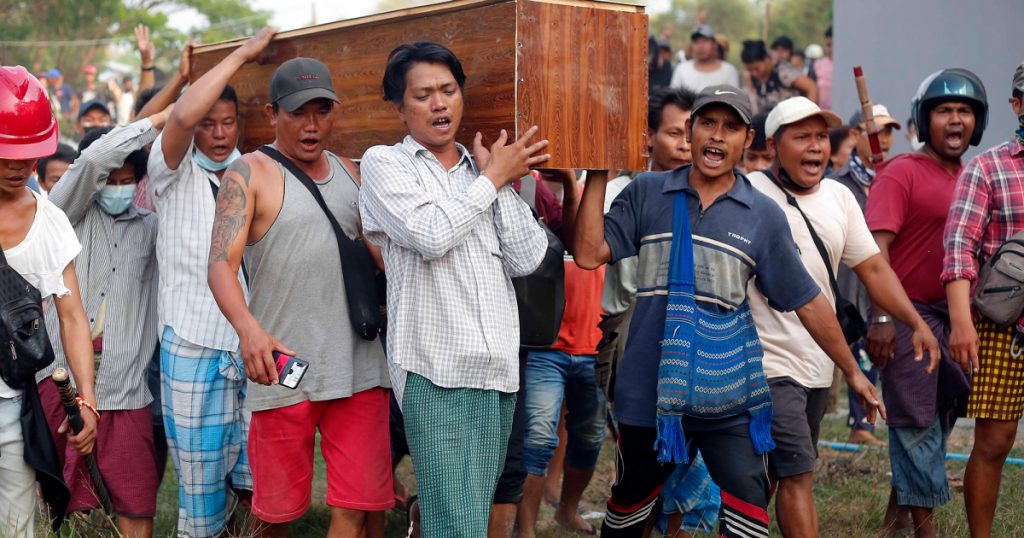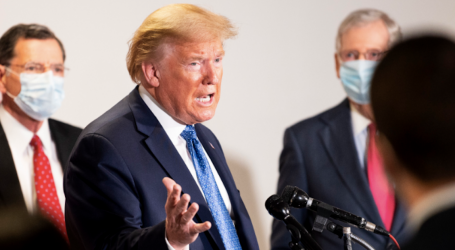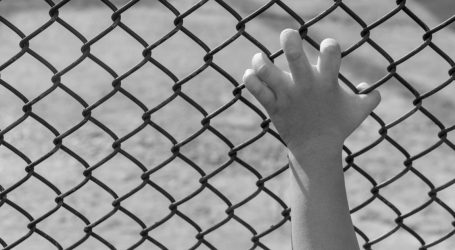A Deadly Day in Myanmar’s Bloody Coup
Mourners carry the coffin of Tin Hla, 43, who was shot dead by security forces during a protest against the military coup in Thanlyin township, outskirts of Yangon, Myanmar on March 27, 2021.Myat Thu Kyaw/NurPhoto via ZUMA Press
Let our journalists help you make sense of the noise: Subscribe to the Mother Jones Daily newsletter and get a recap of news that matters.More than 90 people were reportedly killed on Saturday by security forces across Myanmar, Reuters reported, citing news reports and witnesses. If accurate, the total number of people killed since protests against the Feb. 1 military coup began totals well over 400, the news agency said.
Saturday’s deaths came as the country’s military leaders celebrated Armed Forces Day with a parade in Yangon, the country’s capital city. The Associated Press cited a local researcher who tallied 93 deaths across more than two dozen cities and towns, while another local outlet put the total at 91. Either way, the AP reports, it would be the single deadliest day for protesters since March 14, when between 74 and 90 people were killed.
The head of the country’s military, Senior Gen. Min Aung Hlaing, said during a speech Saturday that the takeover of the country was justified based on irregularities in last November’s elections, and that there would be “a free and fair election” and a transition of power.
On Friday the state television network aired an announcement urging young people to learn a lesson from those killed. “You should learn … that you can be in danger of getting shot to the head and back,” the announcement reportedly said, according to Reuters.
US President Joe Biden approved sanctions in February on the military leaders involved in the coup. On Thursday, US Secretary of State Anthony Blinken announced further sanctions that “target those who led the coup, the economic interests of the military, and the funding streams supporting the Burmese military’s brutal repression.” Some had noted that the previous sanctions had been largely symbolic and may not have been enough to encourage a return to democratic rule.





